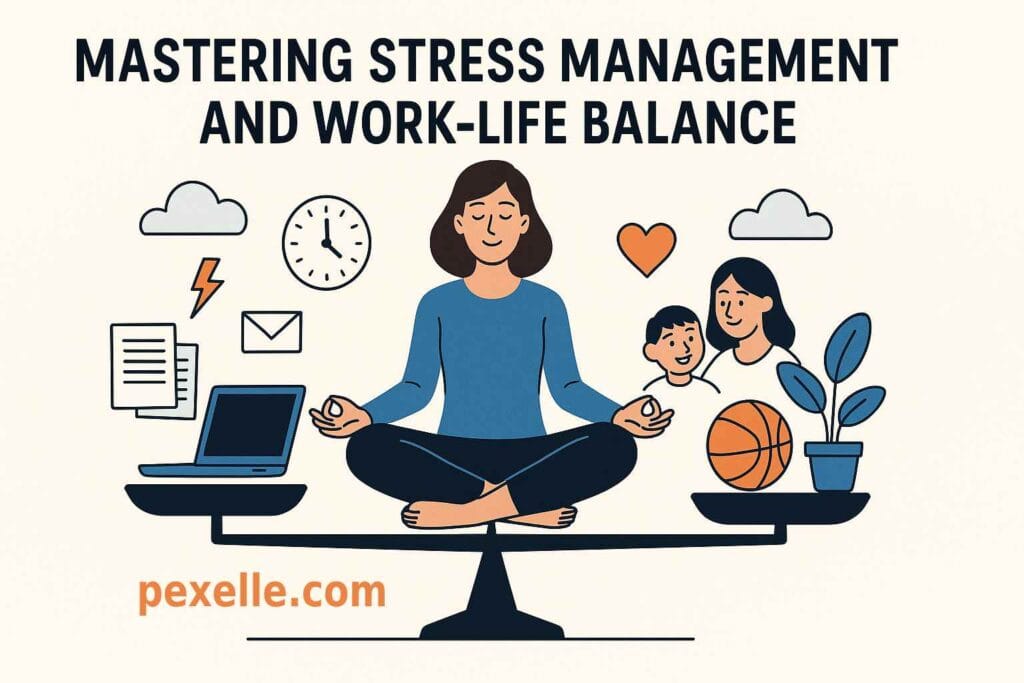Mastering Stress Management and Work-Life Balance

In today’s fast-paced world, the ability to manage stress and maintain a healthy work-life balance has become essential for both personal well-being and professional success. As responsibilities grow and digital boundaries blur, stress can easily become overwhelming. However, with the right strategies and mindset, it is possible to take control, reduce anxiety, and create a life that nurtures both productivity and peace of mind.
Understanding Stress and Its Impact
Stress is a natural physiological response to challenges or demands. While short-term stress can enhance performance and focus, chronic stress has adverse effects on the body and mind. It can lead to burnout, poor sleep, anxiety, and weakened immunity. Recognizing the signs early—such as irritability, fatigue, or loss of concentration—is the first step in effective stress management.
Key Stress Management Skills
To manage stress effectively, individuals can adopt several evidence-based techniques:
- Time Management: Prioritize tasks, set realistic goals, and break work into manageable chunks. Using tools like calendars and to-do lists can help organize tasks and reduce last-minute pressure.
- Mindfulness and Relaxation Techniques: Practices such as meditation, deep breathing, or yoga calm the nervous system and enhance emotional regulation.
- Physical Activity: Regular exercise reduces stress hormones and improves mood. Even short daily walks can have a positive effect.
- Healthy Lifestyle Choices: Nutrition, hydration, and sleep are foundational to stress resilience. Avoiding excessive caffeine and maintaining a consistent sleep schedule help regulate mood and energy.
Building Work-Life Balance
Work-life balance is about setting boundaries between professional responsibilities and personal needs. Without clear boundaries, work can spill over into personal time, leading to dissatisfaction and health issues. Strategies to improve balance include:
- Setting Clear Work Hours: Define a start and end time for your workday. Avoid checking emails or taking calls during personal time.
- Learning to Say No: Overcommitting can lead to unnecessary stress. Be honest about your capacity and prioritize what matters most.
- Taking Breaks and Vacations: Step away regularly to recharge. Even short breaks throughout the day can prevent mental fatigue.
- Nurturing Personal Relationships and Hobbies: Spending time with loved ones and pursuing non-work interests enhances life satisfaction and provides emotional support.
Conclusion
Mastering stress management and achieving work-life balance are ongoing practices that require self-awareness and intention. While external pressures may be constant, our response to them can evolve. By incorporating practical tools and prioritizing self-care, individuals can foster resilience, improve their quality of life, and maintain peak performance in all areas of their lives.
Source : Medium.com




